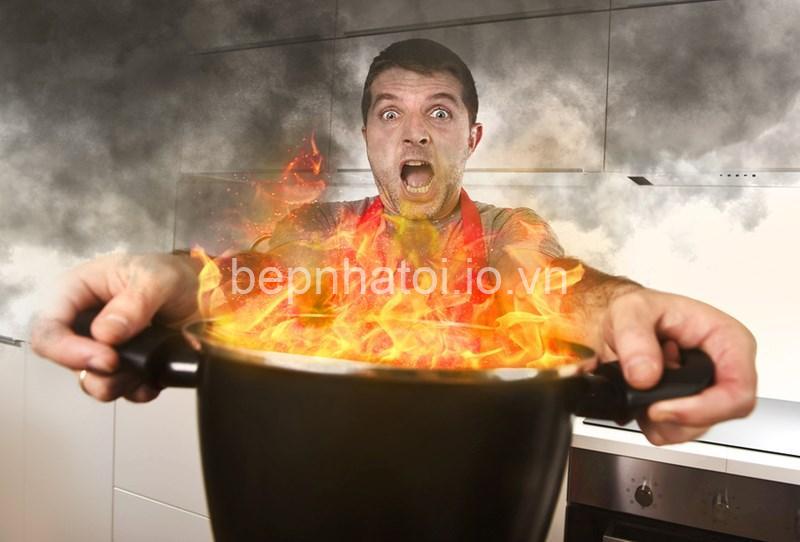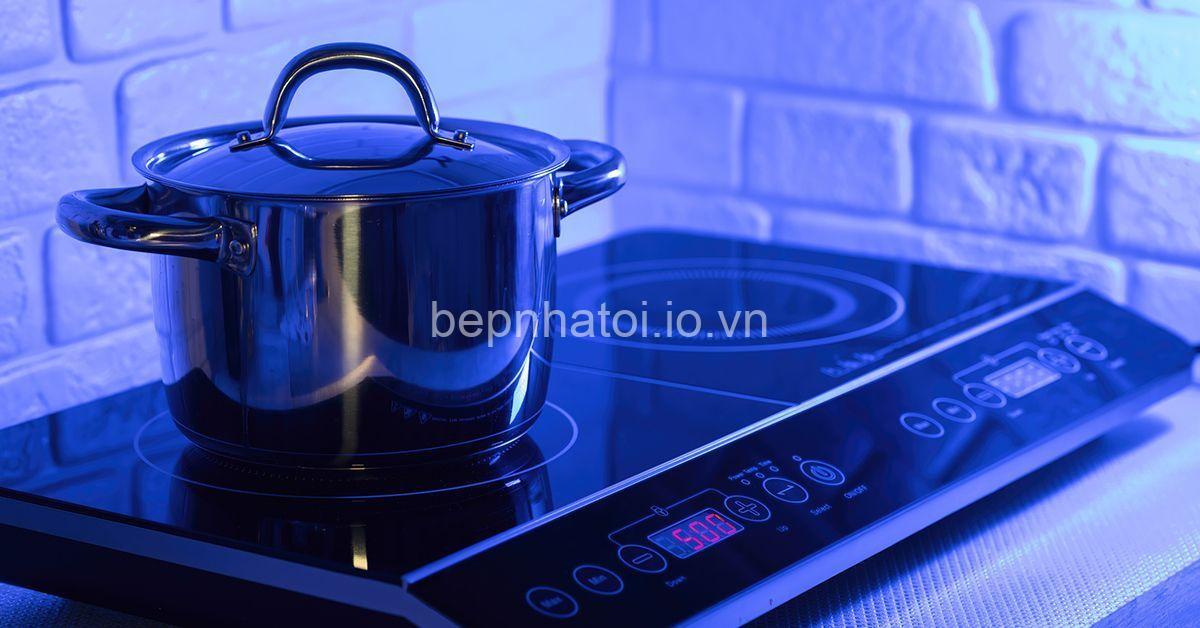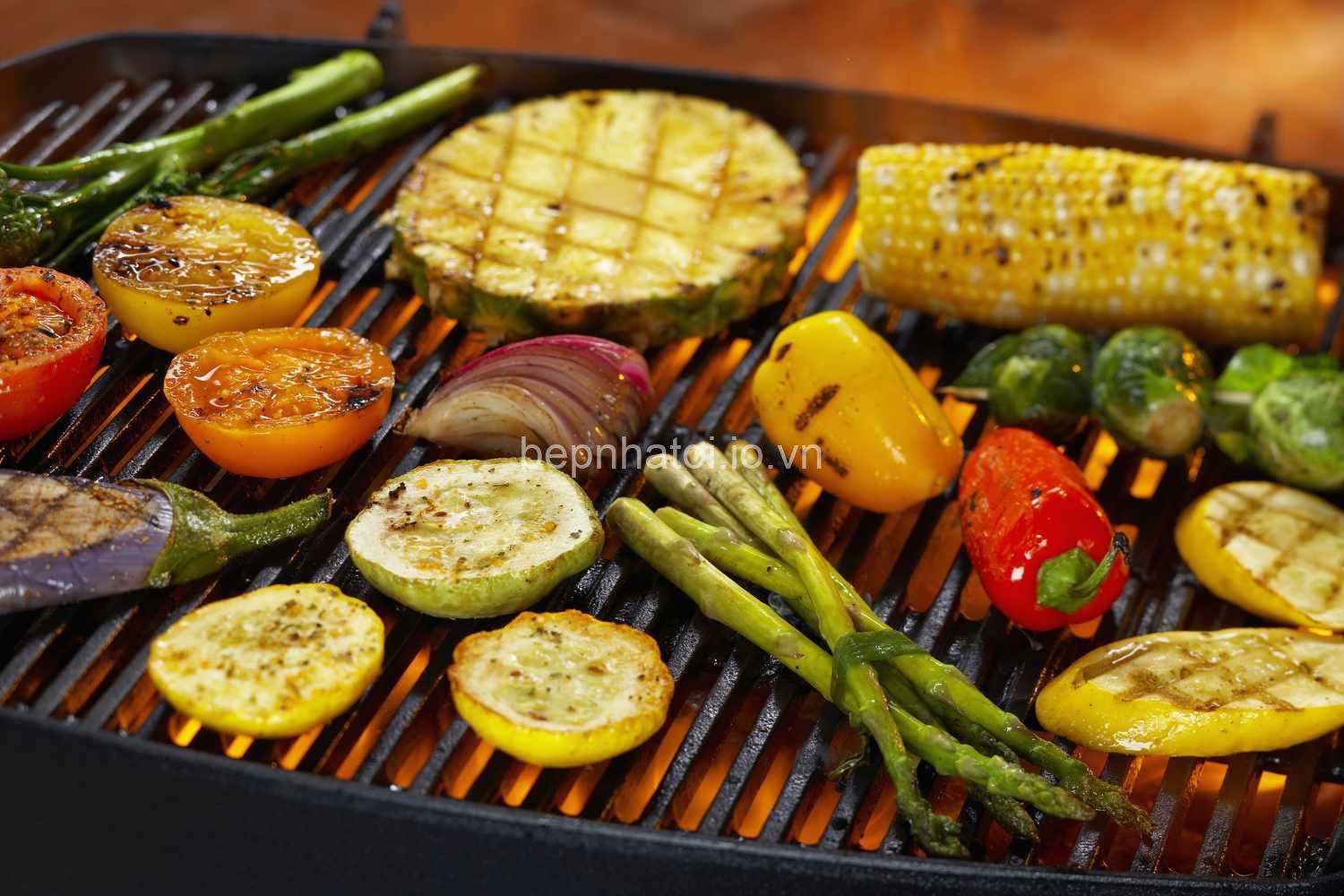
Stove Smells Burning? Safety First & Identify The Source. In today’s article, bepnhatoi.io.vn will explore with you in the most detailed and complete way. See now!
Safety First: Identify The Source Of The Burning Smell
That burning smell from your stove can be unsettling, especially if you’re unsure of its origin. The first step is to prioritize safety. A burning smell often signals a potential hazard, whether it’s burnt food, overheated oil, an electrical malfunction, or even a dangerous gas leak. Understanding the cause is critical for taking the right steps to address the issue.
Imagine you’re cooking dinner, and suddenly, you detect a faint, but unmistakable burning scent. Your first instinct might be to panic, but remember, a calm and measured response is essential. The most common culprits behind a burning smell from your stove are:
- Burnt food on the stovetop: This is the most common cause of a burning smell. It happens when food is left unattended on the stove and starts to char or burn.
- Overheated cooking oil: Oil can quickly overheat and catch fire if left unattended or heated at too high a temperature. This is a particularly dangerous situation because oil fires can spread rapidly.
- Electrical malfunction: A faulty electrical connection or a malfunctioning stove element can also cause a burning smell.
- Gas leak: This is the most serious situation. If you suspect a gas leak, immediately turn off the gas supply at the source and evacuate the house. A gas leak can be highly flammable and potentially explosive, so never attempt to investigate further if you smell gas. Call your local emergency services or the gas company immediately.
Now, once you’ve ruled out a gas leak, it’s time to visually inspect the stove. Look for:
- Visible signs of burning food or oil: Look for burnt food residue, smoke, or discoloration on the stovetop.
- Smoke or discoloration around the stove: Notice any signs of smoke coming from the stove or around the stove’s exterior.
- Loose wiring or burnt components: Check for any visible damage to the electrical cord or loose wiring within the stove.
Remember, even a minor burning smell can be an indicator of a larger issue. It’s always better to err on the side of caution and seek professional help if you are uncertain about the cause or the severity of the problem.

Dealing With Burnt Food
Burnt food is a common culprit behind that lingering burning smell in your kitchen. Thankfully, this is usually the least dangerous situation. The most important step is to turn off the burner that caused the burning. Allow the stovetop to cool down completely before attempting to clean the affected area.
Once the stovetop is cool, you can start cleaning:
- Use a scraper or spatula to remove any burnt food residue. Be gentle and careful not to scratch the stovetop.
- Clean the area thoroughly with a damp cloth and mild detergent. Avoid harsh chemicals or abrasive cleaners, as these can damage the surface.
- Dry the surface completely to prevent rusting. Wipe the area with a clean dry cloth to remove any remaining moisture.
By following these simple steps, you can eliminate the burning smell and restore your stove to its pristine condition.
Addressing Overheated Oil
Oil fires are a more serious matter, and it’s crucial to take the right steps to avoid a dangerous situation. Remember, never attempt to extinguish burning oil with water. Water and oil don’t mix, and this can cause an explosive reaction, potentially causing serious injury.
Instead of using water, you can use one of these methods to safely address an overheated oil fire:
- Turn off the burner and cover the pot with a lid. This will cut off the oxygen supply and smother the flames. Be careful when removing the lid, as the pot will be very hot.
- If the fire is small and manageable, you can use baking soda to smother the flames. Carefully sprinkle a generous amount of baking soda over the burning oil. Baking soda will react with the oil and smother the flames.
- If the fire is large or uncontrollable, immediately evacuate the house and call the fire department. It’s better to be safe than sorry, and a large oil fire can quickly spread and become dangerous.
Always remember, your safety should be the top priority in any situation involving burning oil.
Identifying And Addressing Electrical Malfunctions
While less common than burnt food or overheated oil, electrical malfunctions can also lead to a burning smell. You need to identify the issue and take immediate action to prevent potential hazards.
Here are some steps to take if you suspect an electrical malfunction:
- Check the electrical cord for any damage or fraying. Look for signs of wear, tears, or exposed wires.
- Look for any loose wiring or burnt components inside the stove. If you see any burnt or damaged wiring, it’s a clear sign of an electrical problem.
If you suspect an electrical malfunction, unplug the stove immediately. Do not attempt to repair it yourself unless you are a qualified electrician. Contact a licensed electrician for inspection and repair.
Remember, attempting to repair electrical issues yourself can be dangerous. It’s best to leave it to a professional to ensure safety and proper function.
Dealing With Gas Leaks
Gas leaks are the most serious situation you might encounter with a burning smell. If you suspect a gas leak, immediately evacuate the house and call the gas company or emergency services. It’s crucial to act quickly and decisively in this situation.
Here’s what to do if you suspect a gas leak:
- Evacuate the house immediately. Don’t delay or hesitate. Get everyone out of the house and stay clear until the gas company has checked and cleared the area.
- Call the gas company or your local emergency services. They will be able to determine the cause of the leak and take appropriate action to resolve it.
- Do not use any electrical appliances or light matches while evacuating. These actions can ignite the gas and cause an explosion.
It’s vital to remain calm and follow these steps if you suspect a gas leak. Your safety is paramount, and it’s always better to err on the side of caution.
Preventing Future Burning Smells
You can take preventative measures to avoid future burning smells from your stove. Here are some tips:
- Keep a close eye on food while cooking. Don’t leave food unattended on the stove, especially when it’s near the point of burning.
- Avoid overfilling pots and pans. This can cause food to spill over and burn, creating a strong burning smell.
- Regularly clean the stovetop and oven. Cleaning up spills and burnt food residue can help prevent future burning smells.
- Ensure all electrical connections are secure. Loose or damaged wiring can lead to electrical malfunctions and burning smells.
- Follow manufacturer instructions for operating the stove. This will help you avoid accidents and ensure the stove is used safely.
By following these simple steps, you can minimize the risk of experiencing those unpleasant burning smells in your kitchen.
Additional Resources
For more information on stove safety and how to prevent accidents, check out these resources:
- National Fire Protection Association: https://www.nfpa.org/
- Consumer Product Safety Commission: https://www.cpsc.gov/
- Local fire department: Contact your local fire department for safety tips and resources.
- Appliance manufacturer websites: Refer to your stove’s manufacturer website for operating instructions, safety manuals, and troubleshooting guides.
Frequently Asked Questions
What should I do if I smell gas but I can’t turn off the gas supply?
If you smell gas and cannot turn off the gas supply, immediately evacuate the house and call the gas company or emergency services. Do not attempt to investigate or fix the leak yourself. Safety is the top priority.
How can I prevent my oil from overheating and catching fire?
Prevent oil from overheating by using a lower heat setting and avoiding overcrowding the pan. Always monitor the oil while cooking, and be prepared to turn off the heat if necessary.
Is it safe to use a fire extinguisher on a burning oil fire?
While it’s generally recommended to use a Class B fire extinguisher for an oil fire, it’s best to only use it if you are properly trained and familiar with its use. If you are unsure, evacuate the house and call the fire department.
Can I use a baking soda fire extinguisher on a burning oil fire?
Baking soda fire extinguishers are not designed for oil fires and may not be effective. It’s best to stick with a dedicated Class B fire extinguisher or evacuate the house and call the fire department.
How can I tell if my stove has an electrical malfunction?
If you notice any damage to the electrical cord, loose wiring, burnt components, or unusual sounds coming from the stove, it may have an electrical malfunction. It’s best to unplug the stove and contact a licensed electrician for inspection and repair.
Conclusion
A burning smell from your stove can be a sign of several issues, but by understanding the potential causes and taking the right steps, you can ensure your safety and prevent further problems. I hope this information has been helpful.
For more information on animal care, pet products, and other helpful resources, please visit my website: https://bepnhatoi.io.vn.
Don’t forget to share your thoughts and experiences in the comments section below. I’d love to hear from you and help you learn more about keeping your home safe and enjoyable.
Please share this article with your friends and family to help spread the word about stove safety.




